A Gallery of Works, Research, Courses, and Programs
that contribute to helping everyone here feel they belong,
that MIT is home.
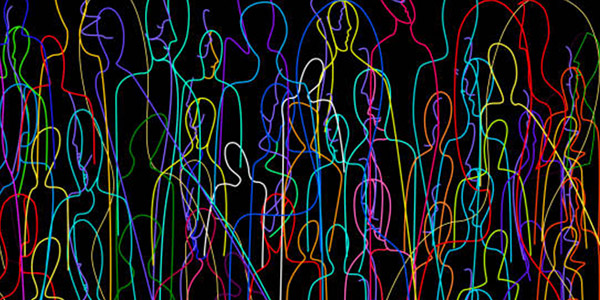
“I tell my students, 'When you get these jobs that you have been so brilliantly trained for, just remember that your real job is that if you are free, you need to free somebody else. If you have some power, then your job is to empower somebody else.”
― Toni Morrison (1931-2019), Nobel laureate, novelist, essayist, and professor
Browse the Gallery
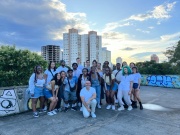
MIT SHASS undergraduates study race, place, and modernity in Brazil
MIT undergraduates visit São Paulo for the Independent Activities Period (IAP) subject “Race, Place, and Modernity in the Americas.
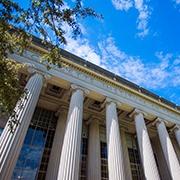
Diversity, Equity, and Inclusion
Literature section establishes DEI advisory board
Board members aim to provide resources to Literature faculty, staff, and students
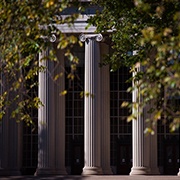
FELLOWSHIPS
Next steps for the 2022-23 SHASS Diversity Predoctoral Fellows
The MIT School of Humanities, Arts, and Social Sciences (SHASS) Diversity Predoctoral Fellows are concluding their time in the program. Learn more about this year's fellows and their plans for the future.
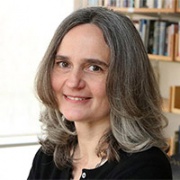
POINTS OF VIEW | ON CULTURE
Culture is a meaning-making practice
Heather Paxson, Wm. Kenan Jr. Professor of Anthropology
"Anthropologists originated the modern understanding of 'culture,' as describing a shared field of beliefs, values, and habituated ways of behaving that give meaning to daily life. What does anthropology have to say about “MIT culture”?
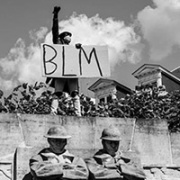
MAKING A JUST SOCIETY
Sustaining the Momentum
Edited by M. Amah Edoh, MIT Professor of Anthropology and Liliane Umubyeyi, co-founder, the African Futures Lab
What will it take to sustain the momentum of movements for racial justice sparked in 2020? Ideas in a new essay collection co-edited by Amah Edoh, MIT Professor of Anthropology, and Liliane Umubyeyi, co-founder/co-director of the African Futures Lab.
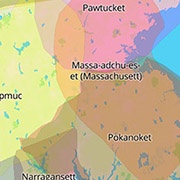
MAKING A JUST SOCIETY
Indigeneity at MIT | A Conversation with David Shane Lowry '03 ('07)
Dr. Lowry is the Distinguished Fellow in Native American Studies at MIT, tasked with leading a conversation at MIT about the actions and responsibilities of the Institute in the history and current realities of Native American communities. A member of the Lumbee Tribe who trained as an anthropologist at MIT, Lowry focuses his research on people and institutions that impact personal and cultural healing.

IN THE CLASSROOM
Inhabiting Science Fiction
Students in 21L.434 / "21st Century Science Fiction," taught by Assistant Professor Laura Finch, discover that the world-building of science fiction is not only a way to envision possible futures, but a powerful way to think about the world we currently inhabit.
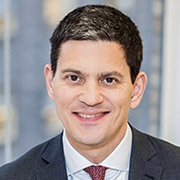
DEMOCRACY | HUMAN RIGHTS
Rt. Hon. David Miliband SM ’90 receives the 2021 Robert A. Muh Alumni Award
His award lecture proposes an "accountability agenda" to restore respect for human rights, democratic norms, and the rights of civilians in combat zones.
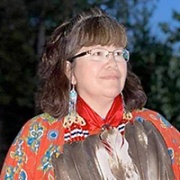
SOLVING CLIMATE
Two-Eyed Seeing
In this interview, Patricia Saulis, MLK Visiting Scholar and Executive Director of the Maliseet Nation Conservation Council, discusses drawing on both Indigenous and Western knowledge systems to develop more sustainable ways to live on the planet.

STRENGTHENING DEMOCRACY
The miracle and tragedy of the 2020 election
Professors Charles Stewart III, MIT, and Nathaniel Persily, Stanford
In a must-read analysis, two of the Nation's leading election administration experts discuss: how, during a pandemic, U.S. election administrators organized the most secure election in American history; the "big lie" that catalyzed violence at the Capitol; and current threats to U.S. voting rights and democracy.
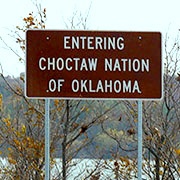
MUSIC AT MIT
MIT composer Charles Shadle releases a new work, "Choctaw Animals," honoring his Native American heritage.
Shadle is arguably the most visible living classical composer in the Choctaw tribe, and he does not want to be the last. Thinking of young Choctaw children in rural communities he says, “To some extent, I can say, you could be a composer too. Your voice can be heard.”

MAKING A JUST SOCIETY
Advancing social justice through music and media
It Must Be Now! explores subject matter that includes institutional racism; environmental, economic, gender, and health injustices; police brutality; and abolitionism.

MAKING A JUST SOCIETY
The Bluest Eye turns 50
Commentary by MIT Professor Sandy Alexandre on Toni Morrison's debut novel: "Morrison’s exquisite language has always given her readers a variety of ways, routes, and turns of phrase to understand the world, so perhaps it’s no surprise that she has rendered something like 'structural racism' comprehensible."
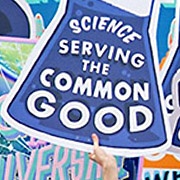
INSIDE THE CLASSROOM
Scientists as engaged citizens
In a new intersectional class from MIT Women's and Gender Studies, (WGS.160/STS.021) students explore how STEM researchers bring their knowledge to bear on behalf of major societal and global issues.
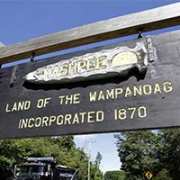
MAKING A JUST SOCIETY
Native American and Indigenous scholarship, education, and creativity in MIT's humanistic fields
This collection highlights works by and about Indigenous and Native American faculty, students, alumni, and visiting scholars in the humanities, arts, and social science fields in the MIT SHASS community.
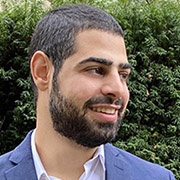
MEET OUR STUDENTS
Profile | Nasir Almasri '21
Political science PhD candidate studies conflicts that emerge at the intersection of politics and religious traditions, with a focus on humanizing those involved.
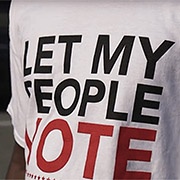
MAKING A JUST SOCIETY
3 Questions: Ariel White on voter rights and re-enfranchisement
"The problems in the Florida case have drawn our attention to how widespread, how life-disrupting, and how racially-disparate the experience of legal debt is for people who have passed through the criminal legal system."
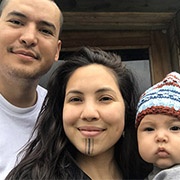
MIT INDIGENOUS LANGUAGE INITIATIVE
Saving Iñupiaq: Annauk Denise Olin
Olin, a graduate student in linguistics, is working to help her Alaska Native community preserve their language and navigate the severe impacts of climate change on their coastal village.

THE MEANINGS OF MASKS
Masks can reveal new possibilities
Manduhai Buyandelger | Anthropology
"In shamanic rituals and in computer-mediated virtual reality, a mask conceals one identity to reveal new possibilities. Seen in this light, virus protection masks offer an opportunity to replace a visage of fear with a public expression of strength as a community." — Manduhai Buyandelger, MIT Associate Professor of Anthropology
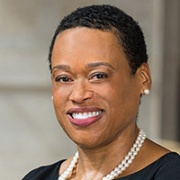
MAKING A JUST SOCIETY | RESTORATIVE JUSTICE
Unearthing the stories of yesterday’s George Floyds
"When we call the victims’ descendants to share our findings, they tell us ‘I never thought I’d get this call.’ The scars remain, and luckily, because we have found documents, so does proof." — Melissa Nobles, Professor of Political Science; MIT Chancellor 2021 - ; Kenan Sahin Dean, MIT School of Humanities, Arts, and Social Sciences 2015-2021
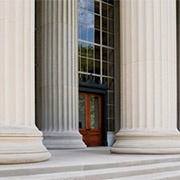
DEMOCRACY AND DEI
Making A Just Society
Resources from the MIT School of Humanities, Arts, and Social Sciences. The Making A Just Society websection includes these categories: Research; Books; the MIT & Slavery Project; Indigenous Peoples; Undergraduate Courses; Free Online MIT Courses; Other MIT Resources; and Elective Affinities, relevant resources beyond MIT.
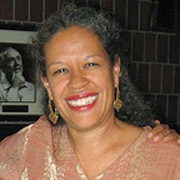
MAKING A JUST SOCIETY | DEI
Everyone's work
Professor of Writing Helen Elaine Lee calls for more engagement in creating racial justice.
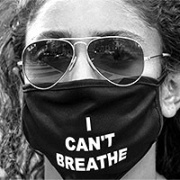
THE MEANINGS OF MASKS
A collective cry for justice | Graham M. Jones
Anthropology
"The mask is one of the most important human artifacts in all of anthropology. It is a tool of transformation that allows its wearers to transcend themselves, taking on timeless roles in ritual dramas, and as actors in a broader social drama."

RACIAL EQUITY AND SOCIAL JUSTICE
A Path Forward
Statement from the faculty of the MIT Comparative Media Studies/Writing program
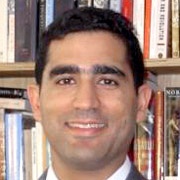
MAKING A JUST SOCIETY
Voices from the MIT Community Vigil
Historian Malick Ghachem delivers remarks on a divided moment.
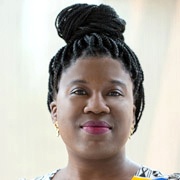
MAKING A JUST SOCIETY
Words + Words + Words
Sandy Alexandre, Associate Professor of Literature, honors and thanks all of the justice-seeking words that came before our 2020 ones.
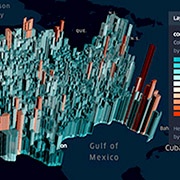
IN THE CLASSROOM
Course Profile: Data and Society
A new course in the Computing and Society Concentration, taught by Eden Medina and Sarah Williams, engages MIT students in the ethics and societal implications of data.
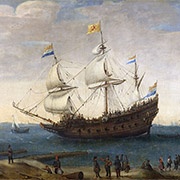
CLIMATE 2020 | HUMANISTIC PERSPECTIVES FROM MIT
Anne McCants | Clues from climate change in history
How, in the nadir of the Little Ice Age, did the Dutch create a Golden Age? "History shows that not everywhere fares equally poorly when faced with climatic stresses. Open-access societies — ones that tolerate a diversity of views and do not restrict agency to a preordained elite — have proved more innovative and resilient than less-open ones."
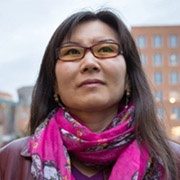
EDUCATION
An ethnology of disruptions in Cambridge, MA
At American Ethnologist, MIT anthropologist Manduhai Buyandelger tracks racism, virtual realities, and world building in Cambridge during the Covid-19 pandemic
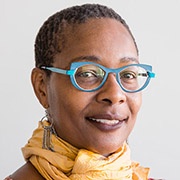
MEET MIT'S HUMANISTIC FACULTY
3Q with historian Kenda Mutongi
On Africa, women, power — and human decency
"Lately I have been trying to think of African history from the perspective of goodness and basic human decency. Of course, conflicts exist, and do a great deal of damage in our lives, and we must confront them — but we must also allow ourselves to appreciate basic goodness and kindness when we see it."
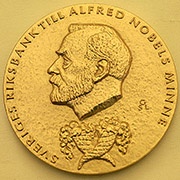
HONORS AND AWARDS
MIT economists Esther Duflo and Abhijit Banerjee win the Nobel Prize
Duflo and Banerjee, whose work has helped transform poverty alleviation, are co-winners of the 2019 Sveriges Riksbank Prize in Economic Sciences in Memory of Alfred Nobel, along with another co-winner, Harvard University economist Michael Kremer.
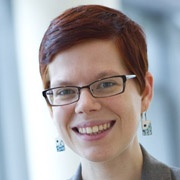
VOTING AND DEMOCRACY
3Q: Ariel White on the impact of incarceration on voting
"The story here is not just about whether people are legally allowed to vote, but about whether they are practically able to vote, whether they know they're allowed to vote, and whether they think they have any reason to do so."
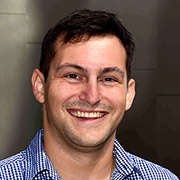
VOICES OF MIT SHASS GRADUATE STUDENTS
Meet Marc Aidinoff, PhD candidate
"What does it mean when civil rights become about access to computers and the Internet? When lack of Internet access is considered a form of poverty? These questions were getting under my skin. I wanted to know how social and economic policy were tied to changing ideas about technology."
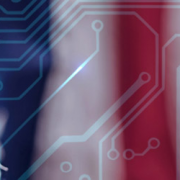
DEMOCRACY
MIT launches Election Data and Science Lab
The lab is dedicated to improving elections, using research, evidence, and analysis. Founded by Charles Stewart III, Kenan Sahin Distinguished Professor of Political Science, the Lab will address multiple audiences of academic researchers, election practitioners, and the general public. It will serve a unique and independent role as it applies scientific principles to empirical questions about the administration of American elections.
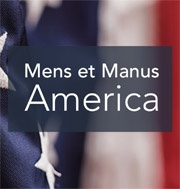
DEMOCRACY
Mens et Manus America Initiative | Portal
This non-partisan MIT initiative convenes research-informed lectures and discussions to explore the major, long-term social, political, and economic issues brought to light in the 2016 US presidential election. We are asking: What can MIT do to help address current challenges in the U.S., and bolster the health of our democracy? Join us as we frame the issues and generate ideas for making a positive impact.
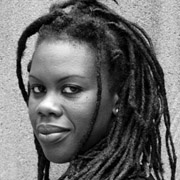
21ST CENTURY CITIZENSHIP
The world as we think the world should be | Meet theater director Charlotte Brathwaite
Charlotte Brathwaite's theater works in response to today's culture of violence violence is inspired by James Baldwin's message of universal love: "If I love you," he said, "I have to make you conscious of the things you do not see."
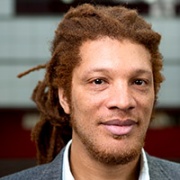
ETHICS, COMPUTING, AND AI | PERSPECTIVES FROM MIT
A Dream of Computing | D. Fox Harrell
"We must be vigilant stewards of the future of computing at MIT. We must reimagine our shared dreams for computing technologies as ones where their potential social and cultural impacts are considered intrinsic to the engineering practices of inventing them."
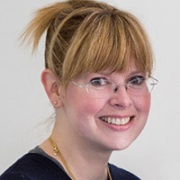
VOICES OF MIT ALUMNI
Abby Everett Jaques, PhD '18, on ethical AI by design
Jaques, an MIT Philosophy postdoctoral associate, is bringing the tools of philosophy to ethical questions related to information technologies.
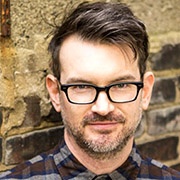
CITIZENSHIP AND THE ARTS
3 Questions with MIT playwright Ken Urban
On theater, science, and the Playwright's Lab
"Understanding others is crucial right now. Of course, understanding is not the same as forgiving or ignoring conflict. But you cannot write convincingly until you care about people who are different from you. That’s what being a playwright has taught me."
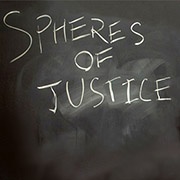
MAKING A JUST SOCIETY
Looking at justice through the lens of political theory
In Bernardo Zacka's 17.01 class, MIT students explore human values and competing theories of the just society
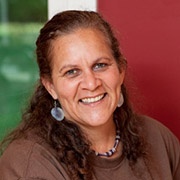
Jessie Little Doe Baird SM'00 receives 2010 MacArthur Fellowship
Award honors her work to revive Wampanoag (Wôpanâak), a language once spoken by tens of thousands of people, which became extinct in the 19th century.
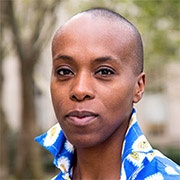
3 Questions with M. Amah Edoh
On Africa and Innovation
"Africa today is seen as the future of global innovation and entrepreneurship in areas from technology to the arts. Important questions about Africa’s new visibility include: Who is recognized as an expert? What is seen as innovative, and what knowledge is considered worth carrying forward? Who gets to be the face of this 'New Africa'?"
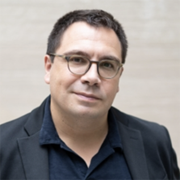
Civil rights in a complex world
Professor Bruno Perreau examines the relationships between personal identity and public institutions.
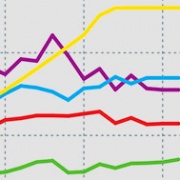
Q&A with economist Thomas Piketty
On globalization and growing inequality
"Globalization today is at a crossroad. It is confronted with major challenges, including rising inequality and global warming. At the same time there is a lot of skepticism about what governments can do to regulate global capitalism. Looking back at previous globalization episodes is critical, first to clarify the specificities of our time." — Thomas Piketty
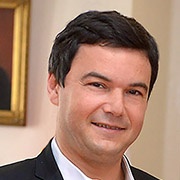
MAKING A JUST SOCIETY
At MIT, Thomas Piketty calls for policies to reduce worldwide inequalities
Globalization and the expanding ranks of the educational elite have contributed to the rise in inequality worldwide, but political policy changes can impact these trends, French economist Thomas Piketty told a packed house at MIT’s Kresge Auditorium on Tuesday, July 31.
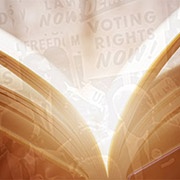
21st C. CITIZENSHIP | LEGACY OF SLAVERY
The Task of History
MIT historians discuss the power of historical knowledge to help make a better world.
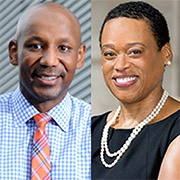
21st C. CITIZENSHIP | LEGACY OF SLAVERY
3Q Interview with Dean Nobles, Professor Wilder
"The MIT community has the opportunity to be involved in this endeavor in real time, learning from the emerging findings. and making informed suggestions to the leadership about potential responses." — Dean Melissa Nobles

MAKING A JUST SOCIETY
MIT and the Legacy of Slavery Project
Stories, Videos, Community Dialogue
“I believe the work of this class is important to the present — and to the future. Something I have always loved about the MIT community is that we seek, and we face, facts. What can history teach us now, as we work to invent the future? How can we make sure that the technologies we invent will contribute to making a better world for all?" — L. Rafael Reif, President of MIT
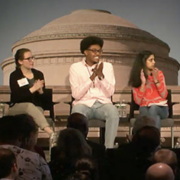
RESEARCH | 21st C. CITIZENSHIP
Institute community explores initial findings from “MIT and Slavery” class.
Students in an undergraduate research course bring the Institute into national conversation about universities and the legacy of slavery. “I believe the work of this class is important to the present — and to the future,” says MIT President L. Rafael Reif. “What can history teach us now, as we work to invent the future? How can we make sure that the technologies we invent will indeed contribute to making a better world for all?"
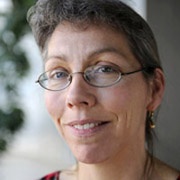
Q&A with economic historian Anne McCants
On the link between innovation and opportunity
"Economic history viewed on a very long timescale tells us that innovation and population size/density are highly correlated. A shorter time horizon tells us that population size alone is not enough. Rather, it is in populations where lots of people are both permitted and capable of 'having a go,' where innovation thrives best."
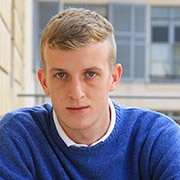
DIVERSITY, EQUITY, AND INCLUSION
At MIT, author Édouard Louis examines the contexts for violence
The capacity to transform personal suffering into a meditation on the larger wounds society inflicts on the powerless and marginalized defines Louis’ literary voice.
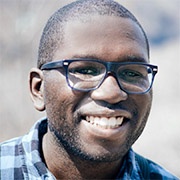
21ST CENTURY CITIZENSHIP
Race and Racism in the 2016 Election
Slate chief political correspondent Jamelle Bouie joins MIT’s Seth Mnookin to explore how race and ethnicity framed the election.

21ST CENTURY CITIZENSHIP
Mens et Manus America initiative launches with documentary film event
200 students and faculty attend kickoff event as SHASS and Sloan begin a non-partisan, research-based exploration of current U.S. social, political, economic challenges.
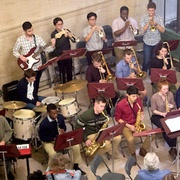
21ST CENTURY CITIZENSHIP
No Walls: The making of a socio-political statement in music
Commentary by Mark Sumner Harvey
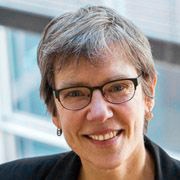
Election Insights 2106: Sally Haslanger on Gender Bias
"As long as 'being presidential' and 'looking presidential' are about being and looking masculine, we will be unable to address what is ripping us apart as a country. Arguably, the androcentrism of our political system...is dangerous for the well-being of our republic."
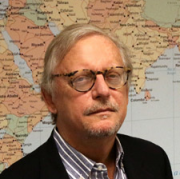
MAKING A JUST SOCIETY
Election Insights 2016 | John Tirman on Immigration
"Negative attitudes toward immigrants have many roots. The economy and 'job stealing' have often ranked high on the list of grievances, but several studies — including one just released by the National Academy of Sciences — demonstrate that immigrants of all kinds boost the U.S. economy overall and hurt few if any native-born Americans. So, what really mobilizes anti-immigrant attitudes?"

MAKING A JUST SOCIETY
Election Insights: Ariel White on Racial Attitudes and Bias
"There's evidence that government is less responsive to people of color. In my work with Julie Faller and Noah Nathan, we have found that election officials are less likely to respond to informational questions about voting eligibility when they're sent from Hispanic-sounding names than when they're sent by non-Hispanic white names. These officials didn't respond rudely to Hispanic questioners; they simply didn't write back as often, and didn't answer their questions as well."
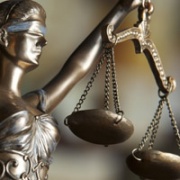
CRIMINAL JUSTICE REFORM
Election Insights 2016: Malick Ghachem on Criminal Justice Reform
"Criminal law is no longer (if it ever was) only about 'criminals,' or even about 'crime.' It has become a matter of everyday life for far too many people."
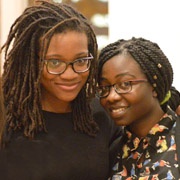
BUILDING COMMUNITY
My Sister's Keeper builds community for black women at MIT
"Being a black woman at MIT is a very particular experience. To compare that with others going through that is very powerful and uplifting," said Itoro Atakpa, a senior in mechanical engineering. My Sister's Keeper supports black women students with social, professional, and mentoring relationships.
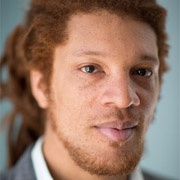
BASIC RESEARCH: ARTS/TECH/SOCIAL INNOVATION
Designing virtual identities for empowerment and social change
Associate Professor D. Fox Harrell awarded $1.35M in grant funding to advance research on at the intersection of social science and digital technology.
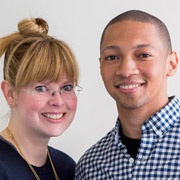
EDUCATION: INCREASING DIVERSITY
MIT grad students organize summer institute to increase diversity in the philosophy field.
The academic pursuit of philosophy (like many other fields) has a serious diversity problem. To help remedy the issue, three MIT philosophy graduate students have organized an innovative program that brought a diverse cohort of undergraduates to the MIT campus this summer, where the students explored the full range of options for pursuing an academic career in philosophy.
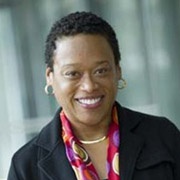
RESEARCH TO POLICY | ADVANCING JUSTICE
3 Questions | Melissa Nobles on advancing racial and restorative justice
Melissa Nobles, Dean of the MIT School of Humanities, Arts, and Social Sciences, and Professor of Political Science, researches historical injustices in democracies. MIT SHASS Communications spoke with Nobles in 2015 about the ongoing aftermath of shooting deaths in Ferguson, New York, and Cleveland, and what her research suggests about the current efforts to advance civil rights in America.
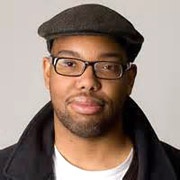
MAKING A JUST SOCIETY
Writer Ta-Nehisi Coates dazzles during two years as Visiting Scholar
“What I tell my students is that you here at MIT have access to great knowledge—more knowledge than 99.9 percent of people who have ever been on planet Earth, and I think you have some sort of moral duty to learn how to communicate that. Knowledge is power; power shouldn’t be hoarded.”
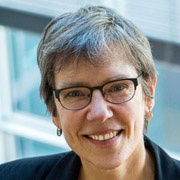
MAKING A JUST SOCIETY
Q&A with Philosopher Sally Haslanger: What is "natural," and what is "social?"
Professor of philosophy and Director of Women's and Gender Studies at MIT, Sally Haslanger recently published Resisting Reality: Social Construction and Social Critique (Oxford University Press), a collection of essays on gender and race. We caught up with her to talk about the rich ideas in her most recent book.
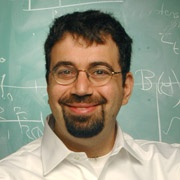
RESEARCH TO POLICY: ECONOMIC STABILITY
MIT economist Daron Acemoglu on inequality and the financial crash
This excellent podcast interview with Daron Acemoglu, Charles P. Kindleberger Professor of Economics, examines the role of income inequality in the financial crash.